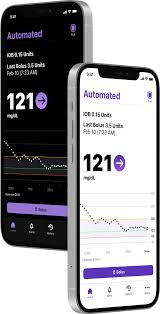Losing Weight with Type 2 Diabetes By: Jessica Hrdlicka MS, RD, LD/N, CDCES Losing weight is one of the most effective strategies for managing — and potentially putting into remission — Type 2 diabetes. Here are practical, science-backed tips tailored to people with T2D: 🥦 1. Prioritize Low-Carb, Whole Foods Carbohydrates have the biggest impact on blood sugar. Tips:
✅ Why it works: Reduces insulin spikes and promotes fat burning. 🍽️ 2. Practice Portion Control & Meal Timing
🧃 3. Cut Liquid Calories & Ultra-Processed Foods
🏋️ 4. Incorporate Regular Exercise
✅ Why it works: Improves insulin sensitivity, helps maintain muscle during fat loss. 🧠 5. Use Behavioral Strategies
🛏️ 6. Optimize Sleep and Stress
💊 7. Review Your Medications
🥣 Sample Plate Formula (for T2D weight loss):
For more information on diabetes management, chronic kidney disease, weight loss, and nutrition, or to schedule your CGM Class, call 561-659-6336 ext 8012 to schedule an appointment today. Please enjoy our June 2025 Living Well with Diabetes Newsletter What Physical Abnormalities Cause Type II Diabetes? By: William Kaye, M.D. Type II diabetes (formally called adult-onset diabetes) is not caused by any one defect in the human body. In fact, medical scientists have discovered several issues contributing to high sugar in the body. When I went to medical school, we were taught that the two basic defects that occur in all type 2 individuals with diabetes are: 1) Diminished secretion of insulin due to the level of sugar at the moment 2) Resistance to the action of your own insulin (which pushes sugar into your cells) Now, many years later (do not ask how many), we have learned that beyond these 2 major defects contributing to high sugars, there are several more. Understanding these defects will help you understand your body better and understand how doctors choose the medications they use. Here are some of the new defects we have discovered. 3) Excess sugar release by the liver, especially overnight (this is why you can awaken with a higher sugar than you go to sleep with) 4) High Glucagon levels. Glucagon is another hormone released by the pancreas. Unlike insulin, which is diminished, glucagon levels are too high in Type II Diabetes, causing excess sugar release by the liver. 5) Low IGF-1: IGF-1 is a hormone that is released from your intestine every time you eat carbohydrates. IGF-1 has two actions. A) It can boost insulin levels, and B) it can suppress glucagon levels. (This makes defects #1 and #4 better, i.e., better insulin levels and lower glucagon levels, so you push more glucose into cells by way of insulin and less glucose is released by your liver). 6) The most recent defect we have discovered that causes diabetes to worsen is the discovery of “increased sugar retention by your kidneys.” This last defect requires a long explanation to make it understandable. Let’s first review how the kidney works in general. Below, I have outlined the functions of the kidney and touched upon a new class of diabetes medications that address this situation. a) The kidney acts to filter out toxins out of our blood. Common toxins are BUN and Creatinine, and at the same time, it selectively prevents the loss of proteins and sugar into the urine. b) Proteins are not lost into the urine because they are bigger than the holes of the kidney filter, so they are retained c) Glucose easily passes through the kidney’s filter because it is a small molecule. However, even though it is filtered through the glomerulus, there is another part of the kidney that reclaims glucose and returns it to the bloodstream. Normally, unless our sugar is very high, let’s say over 225-250, our urine will not show sugar. d) For unclear reasons, the diabetic kidney is better at reclaiming sugar than the kidneys of a non-diabetic person. In a non-diabetic, sugar appears in urine if blood sugar goes above 180. e) This finding of excess sugar reclaiming in the kidney led to the discovery of a class of medication called “SGLT2 inhibitors” f) SGLT2 inhibitors, also known as Sodium Glucose Transport Inhibitors, block the reclaiming of sugar by the kidney and allow the sugar to leave the body in the urine. g) This class of medication (examples: Jardiance, Farxiga) not only lowers blood sugars, but also reduces blood pressure and weight. Talk to your doctor about which medication is appropriate for you and learn how that medication works to lower blood glucose levels for a better understanding of the effects in your body.
Omnipod 5 App Update! By: Ines Cobo, MS, CDCES Yes! The Omnipod 5 App for iOS is now compatible with both Dexcom G6 and Dexcom G7, allowing users to manage their insulin delivery and CGM data from a single app. This integration enables automated insulin delivery, where the system proactively adjusts insulin based on Dexcom G7 glucose readings. Compatibility: The app is compatible with Dexcom G6 and G7, iOS 17 and 18. Automated Insulin Delivery: The app utilizes the Dexcom G7 data to automatically adjust insulin delivery, aiming to keep glucose levels within a target range. Single App Management: Users can manage their Omnipod 5 and view their Dexcom G7 glucose data from the same app on their iPhone. G7 Pods: Ensure that the Omnipod 5 pods you are using are labeled as "compatible with Dexcom G6 and Dexcom G7". App Update: To use the G7 integration, users will need to download the latest version of the Omnipod 5 app from the App Store. Benefits of the G7: The Dexcom G7 features a faster warm-up time- 30 minutes, no separate transmitter, and a smaller sensor profile compared to the G6. Initial Set Up: When switching to a new Omnipod 5 App, users will need to go through the First Time Setup process, and insulin delivery history will be reset, and pod adaptation will restart. Please call our office to schedule your appointment to upgrade your Omnipod 5 app 561-659-6336 ext 8012. Healthy Meal Planning Class & Pre-Diabetes Sessions are available! Join our classes to stay motivated & feel great this Summer!
Healthy Meal Planning & Weight Loss Class West Palm Beach Location (Virtual or In Person!) Temple Israel 1901 N. Flagler Drive West Palm Beach, FL 33401 Tuesday, August 12th10am-12 pm Boynton Beach Location 6056 Boynton Beach Blvd. Boynton Beach, FL 33437 Tuesday, August 19th, 10 am-12 pm Pre-Diabetes Class West Palm Beach Location (Virtual or In Person!) Temple Israel 1901 N. Flagler Drive West Palm Beach, FL 33401 Tuesday, August 19th, 10 am-12 pm If interested in attending this program, please contact our scheduling department at (561) 659-6336 Extension 8001 today! At Healthy Living with Diabetes, we want to ensure that you are satisfied with all services received. We would also like your input on educational workshops that you would like us to offer, information you would like to read about in Healthy Living with Diabetes Monthly or feedback on any workshop that you may have attended. You can contact the director of education personally by email jcook@PBDES.COM or leave a message at (561) 659-6336 ext. 8012. We would love to hear from you! Check us out on the web!
www.facebook.com/pbdeseducation |
Living Well with Diabetes Newsletter | June 2025
Posted By
Palm Beach Diabetes and Endocrine Specialists PA




 www.palmbeachdiabetes.com
www.palmbeachdiabetes.com